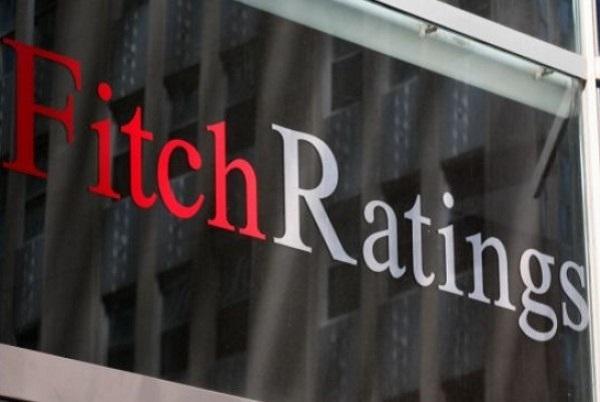This report in from Reuters about the continued stability of Panama.
NEW YORK, March 07 (Fitch) Fitch Ratings has affirmed Panama’s ratings as follows: –Long-term foreign currency IDRs at ‘BBB’; Outlook Stable; –Long-term local currency IDRs at ‘BBB’; Outlook Stable; –Country Ceiling at ‘A’; –Short-term foreign currency IDR at ‘F3’. KEY RATING DRIVERS The affirmation reflects the following factors: Panama’s high growth rates since 2004 are a result of policy continuity centered on the expansion of the Panama Canal and the positioning of the country as a regional logistics hub. This strategy has driven a public and private investment-led growth cycle that has protected the economy from external shocks over the last eight years when Panama’s five year average growth has consistently outperformed that of peers. Higher inflation and deterioration in current account deficits reflected some macroeconomic tensions that have built up over the last few years during the period of rapid growth. However, the flexibility of Panama’s economy – and its ability to adjust to shocks – has helped to mitigate the imbalances and prevented them from becoming problematic. Indeed, some of the macroeconomic imbalances now appear to be diminishing. If Panama’s economic model is well administered, the country could enjoy sustainable growth over the medium term. Fitch expects growth to converge to a more sustainable rate of 6% by 2015 as investment projects come to fruition. Government estimates indicate that the economy expanded at a real rate of 8.5% in 2013. Despite strong growth, Panama’s fiscal consolidation has been relatively slow, partly reflecting the government’s commitment to complete its ambitious investment plan. Consequently, public debt reduction has been driven more by the country’s fast growth rate rather than by a focus on fiscal consolidation. Debt to GDP fell to 38.4% in 2013 from 39.2% in 2012, representing the slowest pace of reduction since 2006 (except in the 2009 global financial crisis). Nevertheless, Fitch’s debt dynamics analysis suggests that debt will continue to fall over the coming two years provided the government keeps its deficit in line with the ceilings incorporated in the Fiscal Responsibility Law. Future consolidation challenges include a slowing economy as well as continued social spending pressures. In addition, the need to address the social security actuarial imbalance, public education, natural disasters and security concerns will burden fiscal accounts in the medium term. Although some unwinding of public investment to more sustainable levels from the current 10% of GDP should provide space for future fiscal consolidation, turnkey projects could be a source of future fiscal rigidity. Further potential delays on the construction works to expand the Panama Canal could make fiscal consolidation harder for any future administration as the fiscal windfall coming from the enlarged canal takes longer to materialize. The Panama Canal expansion is already one year behind schedule due to delays on the construction of the third set of locks, the main project of the expanded canal. On Feb. 27, the Panama Canal Authority (Spanish acronym ACP), the autonomous agency in charge of managing the canal operations, reached an agreement with the locks’ construction consortium to resume work after two weeks of stoppage. Fitch’s base case assumes that the canal expansion will be completed by December 2015 and start operating in 2016 (as per ACP’s February 2014 updated estimate) with some margin of cost overruns. While the assumed completion date could suffer further delays, it is unlikely to undermine the canal’s value proposition in the medium term. However, Fitch believes that the ACP has the financial and technical flexibility to support any possible cost overruns or the change of the construction consortium. Presidential and legislative elections will take place in Panama on May 4. The electoral contest is unlikely to introduce major risks to the economy as the overall growth strategy to leverage the canal and convert the country into a regional logistics hub and attract tourism is not under threat. Overall policy continuity is likely under any of the three leading presidential candidates. Tight poll numbers imply that all leading candidates remain in contention to become president. In fact, it has been difficult for opposition candidates to differentiate themselves from the incumbent given the unprecedented economic growth. RATING SENSITIVITIES The Stable Outlook reflects Fitch’s assessment that upside and downside risks to the rating are currently well balanced. Consequently, Fitch’s sensitivity analysis does not currently anticipate developments with a high likelihood of leading to a rating change. The main factors that, individually or collectively, could lead to positive rating action are: –A sustained reduction in government indebtedness. Adherence to fiscal targets will also be positive for fiscal credibility. –Maintenance of a sustainable growth trajectory. The main factors that, individually or collectively, could lead to negative rating action are: –A sustained fiscal deterioration that leads to a persistent weakening of the government debt dynamics; –A long suspension of the Canal project with adverse material implications for growth and fiscal accounts. A significant reduction in Canal transfers to the Treasury that materially reduces fiscal flexibility. –A destabilizing bout of political uncertainty. KEY ASSUMPTIONS The ratings and Outlooks are sensitive to a number of assumptions: –Fitch’s base case assumes that general elections will be held without disruptions to governance and power will be transferred smoothly; –Fitch base case assumes that the canal expansion will be completed by December 2015 (as per ACP’s updated estimate) with some margin of cost overruns. –Fitch assumes that the impact on the economy and financial system of the Colon Free Zone (CFZ) unresolved suppliers’ arrears from Venezuelan will be manageable; –Fitch base case assumes that the normalization of U.S. monetary policy will be gradual.
